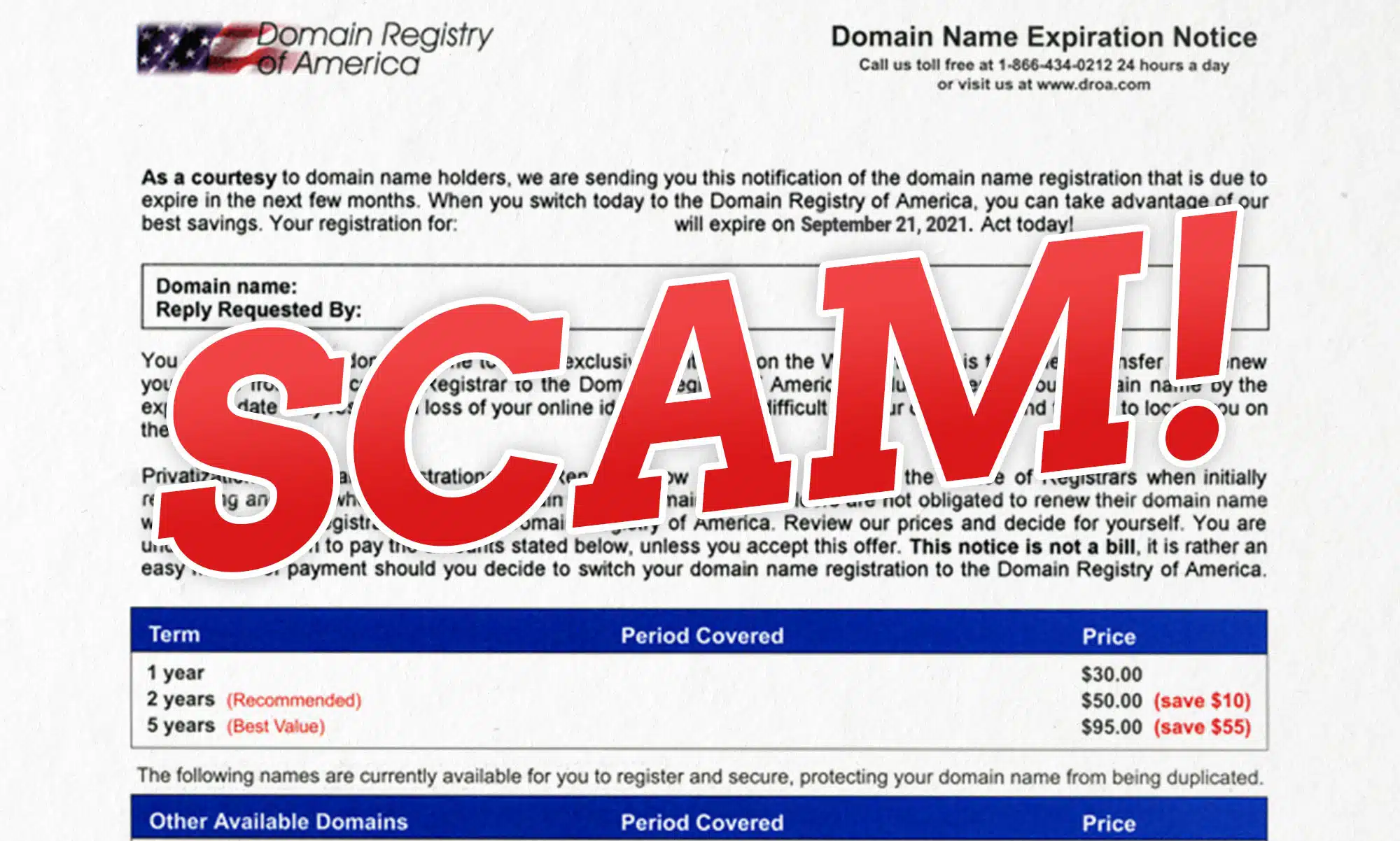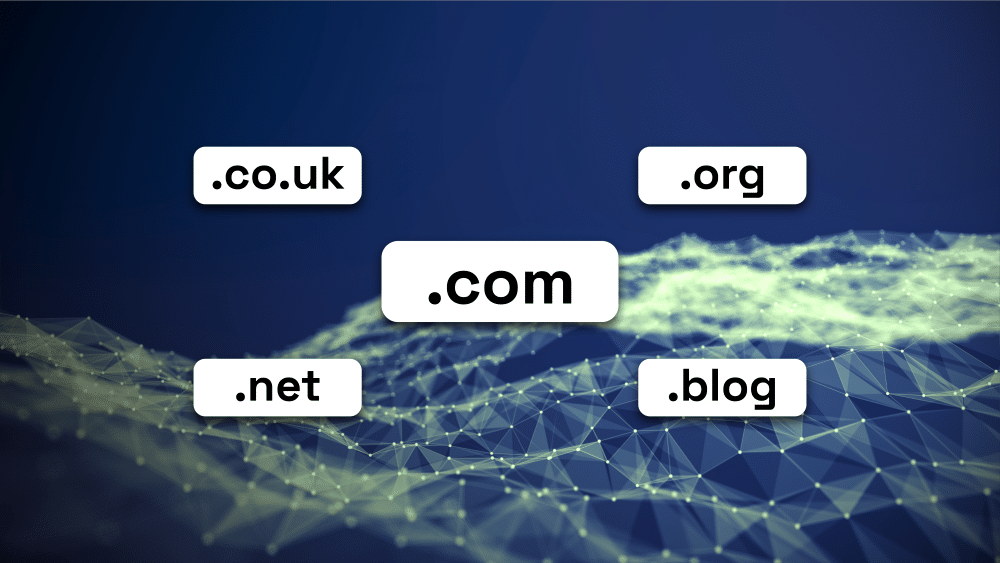Understanding the Domain Name Scam
The bigger the domain name purchase price, the more attractive it is to scammers and fraudsters. Global domain name broker Joe Uddeme shares his top tips for staying safe when buying or selling premium domain names. It’s essential to understand the different types of domain name scams to protect yourself and your online identity. Domain name holders must be vigilant about renewing their domain names to retain exclusive rights. Domain name scams can be difficult to spot, but there are ways to identify them, such as recognizing phishing emails. One domain name renewal scam typically involves urgent phone calls or emails pressuring you to renew your domain names immediately and pay or risk losing your domain. This domain name renewal scam tries to trick people using phishing scams and deceptive tactics when registering names. Awareness and reporting are crucial to protect yourself. Be cautious of emails or letters that create a sense of urgency or threaten to cancel your domain name registration. Watch out for fraudulent domain renewal notices that may look official but are not. Domain registrations often come with options for renewal or transfer, so explore these to avoid falling for scams. Always verify the authenticity of the email or letter by contacting your registrar company directly. Be aware of deceptive practices by companies that send official-looking letters from a domain registry, urging you to transfer your registrations under false pretenses. Protecting Yourself from Domain Scams Always use a secure payment method to pay for domain name renewal. Recognizing legitimate renewal notices is essential to avoid unnecessary fees and potential loss of domain ownership for the customer, so don’t ignore every email you received about your names. Just treat them all with caution. Verify the authenticity of the email or letter by contacting your domain registrar company directly. Scammers often exploit the relationship with your existing registrar by suggesting that a transfer is merely a renewal process. Monitor your domain name registration and renewal dates to avoid missing important deadlines. Scammers use various methods, including urgent phone calls and deceptive emails, to execute a renewal scam. Use domain locking to prevent illegal transfers. Domain hijacking is another threat that can be mitigated by this measure. Registration scams typically manifest through fake renewal notices, creating confusion and unwarranted financial pressure. Keep your contact information private by using a domain name privacy service. Scammers may trick owners through fake offers, exploiting confusion around domain registration and renewal. Fraudulent phishing scams often target website owners, too, using tactics to deceive them into believing they owe money or need to make changes to their domain or hosting services. Understanding Domain Name Renewal Scams A Domain name renewal scam is a type of intellectual property scam or confidence scam that target the owner. These scams can result in financial loss for businesses and individuals. The financial loss can be substantial, affecting both small businesses and large corporations. Domain name scams can take many forms, including domain slamming, false offers to buy or sell domains, and fake trademark protection. It’s essential to understand the different types of domain name scams to protect yourself and your online identity. Domain Registry of America is an example of a fake trademark protection service. They contact the website owner claiming to have a trademark right or warning that someone else owns the rights to your name. Check your expiration date and make sure your domain information is protected so you don’t lose control of your asset. While you can’t technically buy a domain name forever, you can register and renew for extended periods. Domain name scams often involve unscrupulous domain name registrars attempting to generate revenue by tricking businesses into buying, selling, listing, or converting a domain name. These scams can be difficult to spot, but there are ways to identify scam tactics. Be cautious of emails or letters that create a sense of urgency or threaten to cancel your domain name registration. Always verify the authenticity of the email or letter by contacting your registrar company directly. Be able to recognize scammer tactics by paying attention to blog post and article updates. Customers should also consider adding two-factor authentication for all registered accounts, or hiring a domain name consultant for guidance. Definition of domain name scams A domain name scam is a fraudulent scheme where scammers deceive individuals or businesses into paying for fake registration services, overpriced renewals, or by impersonating legitimate registrars. It often involves phishing, domain hijacking, or misleading offers to trick victims into making unauthorized payments or losing control of their domain Importance of awareness and prevention Awareness is the first line of defense against domain name scams. The website owner must be vigilant and proactive in protecting their assets. This means being cautious of unsolicited offers, verifying the authenticity of emails and letters, and keeping domain registration information up to date. By understanding the risks and taking preventative measures, website owners can safeguard themselves from getting scammed. Regularly monitoring domain status and using secure payment methods for renewals are also crucial steps in prevention. Domain Registry and Scams Domain renewal scams: fake notices and invoices Domain scams are a common tactic used by the scammer to trick the owner into paying for unnecessary services or transferring their site to a different registrar. These scams typically involve sending fake notices or invoices that claim the domain name is due for renewal. Often involving inflated prices, notices often appear to be from a registry or a legitimate company, but they are actually from fraudsters posing as an internet registry. Swindlers use various tactics to make these notices or invoices appear legitimate. They may include the domain owner’s contact information and registration details, creating a sense of urgency by claiming that the domain names will expire or be lost if the renewal fee is not paid immediately. They may ask for you to renew your domain and pay an exorbitant fee. This pressure can lead the holder to act hastily without verifying the authenticity of the notice or link. They may also try an inflated price on the renewal scam for your website or use a scare tactic and tell you your name is about to expire if you don’t pay a fee. To avoid domain scams, website owners should be cautious of unsolicited notices or invoices. Always verify the authenticity of the sender by contacting the current registrar directly or checking the domain name holders registration information online. Domain Scams – How to Stay Safe To protect yourself from domain scams, it’s crucial to be vigilant and take proactive steps. Here are some tips to help you avoid falling victim to domain scams: Keep your domain registration information valid, up to date and secure so it never expires. Simply renewing ahead of time. Set a calendar reminder to be a step ahead Be cautious of emails or letters that create a sense of urgency or threaten to cancel your domain name registration. Verify the authenticity of the email or letter by contacting your domain registrar or reseller directly. Use secure payment methods when you register and renew your site or domain name. Avoid Mail that contains your physical mail address. Address customer concerns by contacting customer support. Monitor your domain name registration and renewal dates to avoid missing important deadlines. Consider adding auto-renew as a double check for registering your asset before it expires. Use domain locking to prevent unauthorized transfers of your registered assets. Keep some money in the registrar account in case you have an issue with your credit card when you pay. Keep your contact information private by using a domain name privacy or proxy mail service. By following these tips, you can reduce the risk of falling victim to domain scams and protect your online website identity for your domains. Reporting Domain Scams to Your Domain Registrar If you suspect that you have been a victim of a domain scam, it’s essential to report it to the relevant authorities. Here are some steps you can take: Report the scam to the Federal Trade Commission (FTC). Share the information about the scam on social media to warn others. Use the social media links provided to share the post. Report the scam to your domain registrar company such as Network Solutions. Contact the Internet Corporation for Assigned Names and Numbers (ICANN) Complaint department and let them know about the letter or email. File a complaint with the Better Business Bureau (BBB) if the scammer is a business. By reporting domain scams, you can help prevent others from falling victim to the same scam and bring the fraudsters to justice. About the author Joe Uddeme is Director and Principal of Name Experts, one of the world’s leading domain name brokerage services. He has overseen domain name sales and acquisitions totaling more than $150 million and is renowned worldwide as a go-to expert in buying and selling premium domains. Contact us at: [email protected]














